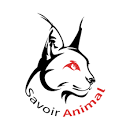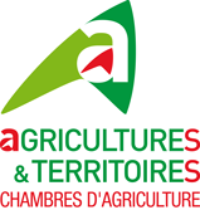Document type: article published in Savoir Animal
Author: Agence Yoann Latouche Group
Preview: Every day, dozens of abused animals require urgent veterinary care. Yet the high cost of care is a major obstacle to their rescue. Faced with this reality, SOS Maltraitance Animale has created the first Fonds de Solidarité Vétérinaire, a unique scheme designed to fund essential medical care for rescued animals. Thanks to this fund, each animal will be able to benefit from the appropriate treatment, with no compromise to health or delays due to budgetary constraints.
Lack of funds for veterinary expenses: a major obstacle to rescue operations
For many associations who come to the rescue of abused animals, one of the major obstacles to intervention is the cost of veterinary care, which can place unbearable strain on limited funds. for this reason, some associations choose to bring a halt to rescue operations in the middle of the year, so as not to put the lives of animals already in their care at risk for lack of funds to feed or care for them.
200 euros: average cost of veterinary care per rescued animal
Readers may not be aware that the average cost of veterinary care for an abused animal cared for by 3677 SOS Maltraitance Animale is two hundred euros. This sum only covers the cost of the first veterinary visit, identification, vaccinations and the administration of antiparasitic drugs, to enable the rescued animal to be taken as soon as possible to a shelter, association or foster family, who will be responsible for overseeing the animal`s recovery and restoring its confidence in humans, in order to find it a new home. Of course, this sum is not nearly adequate when the animal requires more extensive care, such as blood tests, perfusions, surgery, therapy or equipment adapted to a handicap caused by abuse.
5 to 20 cases of abuse a day
Since the launch of 3677 in June 2024, the dedicated telephone hotline to report cases of animal abuse throughout France has received more than 27,000 direct telephone reports, and more than 5,000 reports using the form available on 3677.fr. While the majority of calls and forms do not result in the investigation and systematic removal of the animal in question, every day the teams at 3677 have to deal directly with 5 to 20 extremely urgent cases. Starving, neglected, physically abused, and deprived of care, these frightened animals suffer from malnutrition, cachexia, severe parasitism, fractures, psychological and physical trauma, some of which require long and costly treatment.
A unique solidarity fund
To meet these veterinary expenses and enable 3677 to save ALL the animals reported to it, SOS Maltraitance Animale has decided to create the first Veterinary Solidarity Fund. This fund will be used to finance:
- The transfer of animals to the nearest veterinary clinic for medical treatment
- Payment for all examinations and emergency care
- Payment for the surgery required for the complete recovery of the animal
- Payment for treatments and therapy for long and chronic illnesses and pathologies
- The transfer of animals to q shelter, association or foster family
By creating this Fonds de Solidarité Vétérinaire, SOS Maltraitance Animale wishes to ensure that all animals in its care (...)
Who can contribute to the fund?
- Individuals
- Companies
- Local authorities (town halls, regional authoritiess, government departments, etc.)
Where can I make a donation to the Fonds de Solidarité Vétérinaire?
3677.fr/fonds-de-solidarite-veterinaire
The Conseil National de la Protection Animale is an independent association that receives no subsidies. Donations to the CNPA, a public interest association, are tax-deductible up to 66%. If you donate 100 euros, you will actually be donating 34 euros.
Figures that speak for themselves
Since its launch, the animal abuse hotline (3677) has received 27,041 calls, i.e. over 3,800 calls per month. 20,705 of these calls are from individuals who have witnessed animal abuse in their neighborhood and wish to report it. 20,277 reports concerned domestic animals, 465 livestock (cattle, sheep, goats, etc.) (...)






